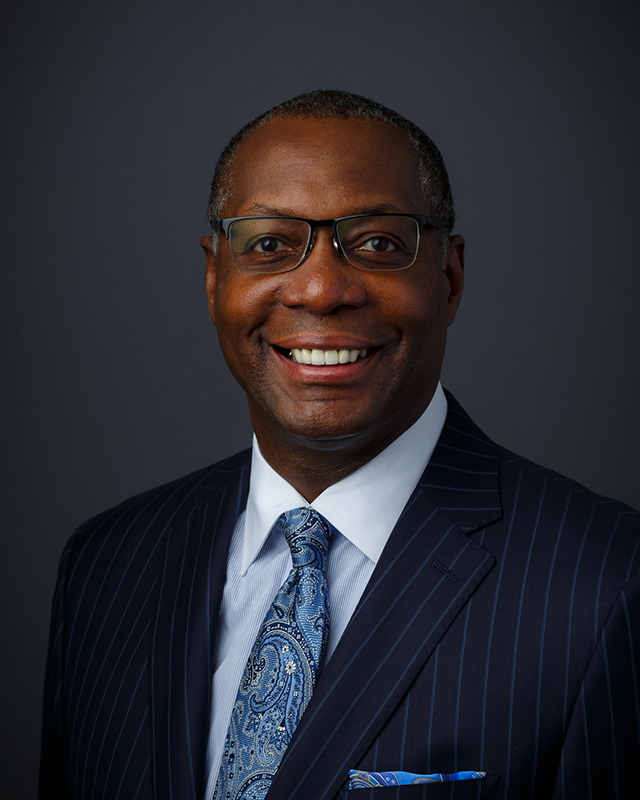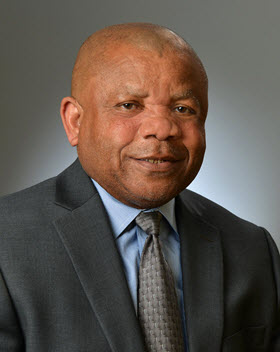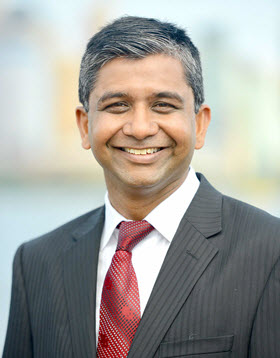Cardinal Health MarketSM
The legacy Cardinal.com Medical Ordering site has been replaced with Cardinal Health MarketSM, a new product experience designed with you in mind.

04/07/2021
Pharmacists play a critical role in addressing vaccine hesitancy and increasing vaccine access
 April is April is National Minority Health Month, dedicated to raising awareness about health disparities that impact racial and ethnic minority populations. This year, the U.S. Department of Health and Human Services (HHS) Office of Minority Health is focusing on the disproportionate impact the COVID-19 pandemic is having on racial and ethnic minority communities, and the need for these communities to get vaccinated.
April is April is National Minority Health Month, dedicated to raising awareness about health disparities that impact racial and ethnic minority populations. This year, the U.S. Department of Health and Human Services (HHS) Office of Minority Health is focusing on the disproportionate impact the COVID-19 pandemic is having on racial and ethnic minority communities, and the need for these communities to get vaccinated.
As The Commonwealth Fund and many other organizations have shown during the pandemic, the stark reality is that the long-standing inequities of gender, race, ethnicity and the income gap for women and people of color are causing a greater strain. Systemic health and social inequities mean that an over-arching number have been more susceptible to COVID-19 risk factors and to poorer outcomes. According to the CDC, a greater percentage of minority populations are more likely to be essential workers who don’t have the option of working from home, increasing their chances of being infected.
And yet, we continue to read about communities of color who are less likely than non-minority populations to be vaccinated against COVID-19, primarily due to historical racial medical atrocities, vaccine hesitancy, bias in the larger current healthcare system and lack of access.
Community pharmacists can play an important role in addressing all of these issues.
Overcoming vaccine hesitancy
Community pharmacists are the most accessible healthcare professionals to the general public, and often serve as their patients’ most trusted healthcare providers, which makes them highly effective in educating about vaccine safety and efficacy, and in getting people vaccinated. Below are just three examples of community pharmacists who are leading the way to reaching our communities to maximize COVID-19 vaccinations to speed this pandemic’s much needed end.

Nnodum Iheme, PharmB, owner of Ziks Family Pharmacy and Home Medical Equipment in Dayton, Ohio: Originally from Nigeria, Iheme became a pharmacist, he says, because he wanted to be of service to his community. He has been practicing pharmacy in the Dayton area for more than 20 years, and, when COVID-19 vaccines arrived in Ohio, his pharmacy was one of the first two in the state to receive doses.
Iheme and his team worked quickly to vaccinate as many people as possible, and soon realized they needed to be creative in overcoming vaccine hesitancy. “The vaccines are still so new; many people are worried about them,” he said. “Every time there’s a rumor about something going wrong with the vaccines, or someone getting sick from them, the hesitancy increases.” He noted the higher percentage of people of color that are particularly reluctant to get vaccines.
In January, Iheme approached the ministers of seven Black churches in the Dayton area, asking them to get vaccinated as soon as possible – and to talk about their experience with their congregations. “After we vaccinated the ministers, several of them invited us to come to their churches to speak about the vaccines,” he said.
Iheme and his Ziks team host vaccine clinics at their pharmacy locations three days a week, and at other locations throughout their community to increase vaccine access – in downtown Dayton, at Wright State University, in long-term care facilities and in various churches.
Their ongoing outreach and commitment to the health and safety of the community are making an impact. In January alone, Iheme’s team had vaccinated 1,400 people, and they continue to inoculate several hundred people each week.

Ritesh Shah, RPh, owner of four independent pharmacies in Central New Jersey, and CEO of Legacy Pharmacy Group, a group purchasing organization for independent pharmacies: Born and educated in India, Shah has been practicing pharmacy in New Jersey for more than 20 years. When Covid-19 hit the U.S. last year, he and his team began setting up testing stations in their pharmacies and other locations in their communities. To date, they have tested more than 250,000 people for the disease. And even before New Jersey pharmacists got access to vaccines, Shah had pre-registered nearly 100,000 individuals for them.
A long-time public health advocate, Shah has relationships with state health department officials and lawmakers and spends a good deal of his time educating them about the needs of his patients. In October last year, Shah received a commendation from the Governor of New Jersey, a state Senator and the General Assembly for his efforts in helping educate the public, testing for COVID-19 and helping prevent the spread of the disease.
“We are all in this together,” Shah said. “As pharmacists, we must do all it takes to make our communities safer. It’s not only our responsibility, it’s an obligation.”

Angel Lee, PharmD, owner of Woori Pharmacy in Los Angeles, California: Lee moved from Korea to Southern California with her family soon after she graduated from high school. She earned a bachelor’s degree and a Doctor of Pharmacy degree at the University of Southern California. In 2000, she founded her own pharmacy, naming it Woori, which means “our” in Korean.
Woori was one of the first pharmacies in California to get the vaccine, and Lee and her team have been inoculating patients since February.
In her community, she says, vaccine hesitancy is very common. “Everyone, regardless of their ethnicity, is leery of the vaccine,” she said. “We have to convince the entire community that the vaccine is safe and that it’s the best way to prevent COVID-19.”
Lee, her staff and their families got vaccinated early, “to show the community that we believe the vaccine is safe.”
Then, she and her team set up a vaccine clinic in Woori’s parking lot, where people can get their vaccine under a large canopy or simply drive through. The clinic is open several hours a day, five days a week, including alternating Saturdays and Sundays, to accommodate various work schedules. Community members line up to add their names to the vaccine waiting list, Lee said. “A lot of our customers have told us that they wouldn’t get vaccinated anywhere but Woori. Some even said they waited until we opened our clinic to get the vaccine. They tell their friends and neighbors about us, and that brings in more traffic.” To date, the Woori staff has administered more than 2,000 doses of the vaccine.
Though vaccine hesitancy has been an issue in her community, access to the vaccine is a larger problem, Lee said. “If people don’t have internet service, it’s very difficult to find a vaccine location and schedule an appointment.
“We encourage people to make an appointment with us by phone, or simply drop in,” she said. “We’ll get them vaccinated.”
Telepharmacies: Increasing equitable access to vaccines
Many areas of the country hit hardest by the pandemic are also pharmacy deserts, where there is poor access to pharmacy services and to the vaccine.
In rural settings, a pharmacy desert is an area within a 10-mile radius with no access to a pharmacy. Pharmacy deserts are also prevalent in densely populated areas, and there are far fewer pharmacies in poorer, more ethnically diverse neighborhoods within urban areas.
According to new research from Cardinal Health, there are at least 1.5 million people living in rural pharmacy deserts. An ABC News analysis found that there are 150 counties across the country with no pharmacy at all. Pharmacy deserts then create vaccine deserts.
Telepharmacy is a safe, effective solution used to establish and restore pharmacy access to patients living in rural and urban pharmacy deserts. Through the use of technology, telepharmacies allow a single pharmacist to supervise and review prescriptions remotely for multiple locations. Patients can pick up medications from a licensed location near them that is staffed by pharmacy technicians, and receive virtual counseling with the pharmacist.
In addition to providing patients with access to medications, immunizations and other clinical services, pharmacists can schedule and announce specific COVID-19 vaccination days when they plan to be on-site, so patients can receive a vaccine closer to home.
The pandemic has accelerated the adoption of telepharmacies as virtual meetings with healthcare providers became the safer option. But telepharmacy is currently allowed in only half of the states in this country.
At Cardinal Health, we believe that telepharmacies are key to providing equitable access to COVID-19 vaccines, as well as other essential pharmacy services. We support them through a solution called TelePharm, a cloud-based software that provides the secure delivery of remote pharmacy services.
Telepharmacies combat pharmacy deserts and enable pharmacists to take better care of more patients – and that’s good for all of us.
Community pharmacists are playing a critical role in our nation’s COVID-19 response, by educating patients in person or remotely, and increasing access to vaccines in their pharmacies or via telepharmacies.
As an African-American male and a cancer survivor, I made the decision to get vaccinated and do my part to stop the spread of this terrible virus and protect myself. It is my hope that you all do the same in honor of the month and be #vaccineready.
This Minority Health Month, and every month of the year, I am grateful for all pharmacists.
Victor Crawford is the CEO of Cardinal Health’s Pharmaceutical segment, which distributes brand and generic pharmaceutical, specialty pharmaceutical and over-the-counter healthcare and consumer products. In addition, the Pharmaceutical segment provides services to support the development of these products to pharmaceutical manufacturers and healthcare providers across the country. He also serves on the board of directors of several publicly traded companies and nonprofit organizations, including the Hershey Company, Thomas Jefferson University, the National Urban League and Pelotonia.